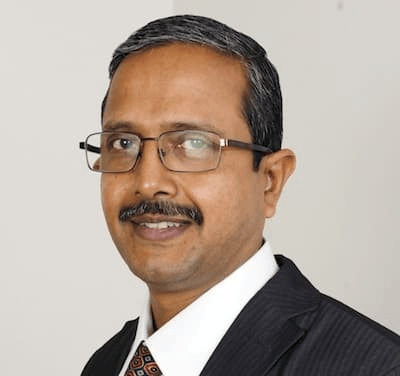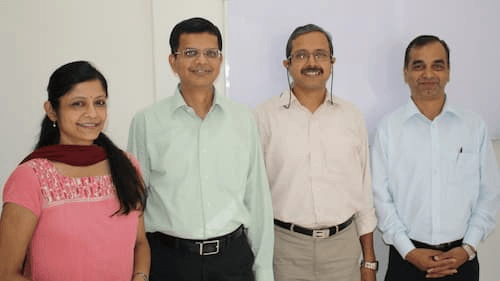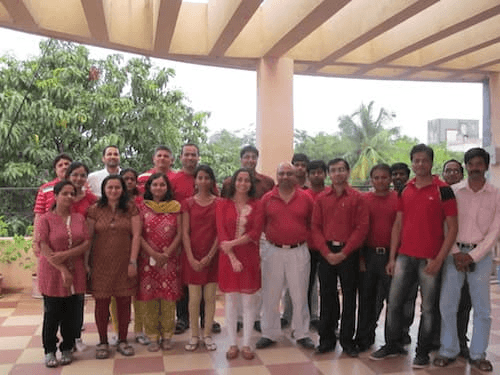
Administrator • 10yrs
"Ideas are important but flawless execution of those ideas is doubly more important." - Madhukar Bhatia,Sapience Analytics
Sapience Analytics is a Pune-based analytics start-up founded in 2009 by Shirish Deodhar, Madhukar Bhatia, Swati Deodhar and Hemant Joshi. The company has developed a software tool designed to gain 20+% work output from employees without any change in the existing process, resulting in a Rs. 10 million value each year per 100 employees. Within 3 years, Sapience has scaled to 60+ installations and 100,000 users. Their customers include two Fortune Global 200 companies, several billion dollar global ISVs, 3 of India’s Top 10 and 8 of India’s Top 25 IT companies, and many medium and small firms in IT, Engineering Services, BPOs, KPOs and Finance.
Sapience has been recognized as one of India’s fastest growing Enterprise Software products by Dun & Bradstreet (Best Emerging SME – 2013), NASSCOM (India’s Top 10 - 2013), IDG Channel World (50 Hot Global Companies - 2013), Frost & Sullivan (Product Excellence Matrix – 2013), Red Herring (Asia Top 100 technology start-up - 2011), and Economic Times as India’s Next Gen IT Companyand Sapience Analytics - 14 startups to look forward to in 2014.
In an exclusive interview with Madhukar Bhatia, we get to know more about the insides of Sapience Analytics, the journey of the co-founders so far. We also discuss about the importance of feedback for any startup and the difference in the approach of - working in a team and leading a team. Read on!
 Madhukar Bhatia
Madhukar Bhatia
CE: Sapience Analytics was founded by a team of four people (Shirish Deodhar, Swati Deodhar, Hemant Joshi and you) from different backgrounds. How did the team come together?
Madhukar: The three of us first met in VERITAS Software. I joined VERITAS in 1999 as an Engineering Manager to start a team working on BackupExec and NetBackup line of products. Shirish was the head of VERITAS India at that time and Hemant was managing another line of product like me. VERITAS India was considered to be one of the most successful offshore development centers in India. It had good facilities, great set of people and good work environment but we wanted to do something on our own. I think Hemant brought up this idea first during an informal chat. Shirish had already built a company (Frontier Software) that VERITAS had acquired earlier but for Hemant and I, this was going to be a new experience. We left VERITAS in 2003 and started In-Reality Software which was an outsourced product development company. This is where Swati joined us. Four of us have worked together since then.
In-Reality Software grew fairly quickly and in less than 2 years we were acquired by Symphony Services. After completing our three years of lock-in with Symphony Services, we started nFactorial where we mentored small software start-ups in Pune. During this time, Swati came up with a product idea and Sapience was born.
 The Founders Team
The Founders Team
CE: You have worked with VERITA S Software, In-Reality Software, Symphony Services and nFactorial Software for more than two decades before co-founding Sapience Analytics. How is working in a team different from creating your own team?
Madhukar: The fundamentals of building and working in a high performing team remain the same irrespective of whether you are working as an employee or building your own company. Teamwork, respect for your teammates, taking pride in and ownership of your work are some of these fundamentals.
The only difference while building a team in your start-up is that you have much better clarity about the goal and an even higher level of ownership. The buck really stops with you!
CE: How important is applying feedback received from customers to improve services? What is some of the critical feedback you have recently received?
Madhukar: You generally have only the kernel of the idea when you start working on a product. It is the feedbacks from customers, reaction from prospects during sales presentations and competitive landscape that shape the final product. Customer feedback is even more important when you are creating a totally new market like in case of Sapience.
At Sapience Analytics, we have always given a lot of importance to explicit as well as implicit feedbacks from our customers. We have a dedicated Customer Success team that is separate from Customer Support team. This team helps our customers in evangelizing the product within their company and creating appropriate communication for all the stakeholders. They also help the customer in getting the best value out of Sapience by suggesting appropriate analysis. In return, we get a lot of ideas on how to improve our product.
Sometime last year we realized that it was an additional burden on customer IT team to deploy and keep track of Sapience client on thousands of machines. This feedback has resulted in our personal client becoming very easy to deploy, uninstall and maintain. As we now expand our footprint in USA and Europe, we are fine-tuning our product based on culture and legal framework of those countries.
CE: Managing finance is one of the most challenging tasks for any startup. We would like to know about the most challenging financial situation Sapience Analytics dealt with.
Madhukar: We have always been quite careful about managing our finances. The VC community in India is much more conservative than in USA and it is almost impossible to get any funding till you have a few good customers to show.
Making the very first version of the product without any external financing was the biggest challenge. We deliberately decided to focus only on Pune based companies in the beginning. This helped us keep the cost of sales and support low while we fine-tuned the product based on customer feedback. Once we had few mid-sized, Pune based companies as our customers, it became possible to raise some seed funding from India Angel Network. That eased the financial pressure significantly. We could add to our engineering team and reach out to customers outside Pune as well. We received one more round of funding in late 2011.
CE: What are the biggest lessons you have learnt from your varied experience? What will be your advice to budding engineers?
Madhukar:
Ideas are important but flawless execution of those ideas is doubly more important. In fact the ideas evolve and improve as you execute on them. The difficulties get resolved as you keep working on them. Even more importantly, details emerge that help you differentiate your implementation from others.
CE: What are your expectations from today’s scientists and engineers?
Madhukar: Science started as a study of nature. It is heartening to see a good amount of work being done today on sustainable development that seeks to restore the balance between our needs and nature. It will also be good to see more research that makes technology accessible to masses. The technology should help create a more level playing field instead of creating barriers to progress for those who do not have a lot of resources.
CE: How do you spend a typical weekday in office?
Madhukar: After more than ten years of technical management, sales and other customer-facing roles, I switched back to a mainly technical role around a year ago. I took this decision partly because we had excess bandwidth available at senior level and partly because I am still an engineer at heart. I am also involved in team management and some customer deployments that results in quite a lot of interruptions. I try to find some quiet time for designing and implementation by staggering my office time. I come to office by 11:00 AM or so and try to finish all emails and escalation before lunch time. Post lunch time is spent in meetings and some technical work.
I stay back in office after most people have left. This gives me uninterrupted time to do some focused work.
 The Sapience Analytics Workforce
The Sapience Analytics Workforce
CE: How difficult is it to work to make a product popular? What steps did you take to reach out to people?
Madhukar: It is a challenge to create market for a totally new type of product like Sapience. It requires educating your prospects about what this product can do for them. Articulating the value of the product and hence deciding the price of a new category of product is very difficult. I don’t think there are any short cuts here. First of all, you need to have a product that the customers like. You need to keep listening to them to fine tune the product to their needs and there cannot be anything better than customer referral. You need to keep trying and keep listening to prospects and customers very closely.
To establish a quick recall with prospects we changes the company name from Innovizetech Software to Sapience Analytics in 2011. This was done to create a consistent, single brand identity, which we are promoting aggressively. Our marketing vision is to make Sapience as the # 1 global solution for transforming workplace efficiency.
Our website sapience.net promotes the Sapience brand. We have built up a significant social media presence with weekly blogs from ‘Sapience Guru’ on topics related to organization productivity and employee work-life balance, client video testimonials in which CEOs, managers and employees talk of how Sapience benefits them, regular opinion polls and surveys, and contributions to third party websites. We use search engine optimization, advertisements on Google and multiple media coverage to help Sapience become a recognized player in employee productivity space, initially in India and eventually across the globe. We conduct webinars and publish quarterly newsletters to customers and prospects. Customers have access to Sapience Knowledge Centre with FAQs related to the product, product usage videos, whitepapers, case studies, and best practices to derive maximum gains from Sapience.
Sapience ranks in the Top 5 links on google.in when you search for employee productivity. We intend to achieve a similar ranking on google.com by end 2014.
With a 100,000+ user base Sapience has been recognized as an innovative product and a rising star by Dun & Bradstreet, Frost and Sullivan, IDG Channel World, and Economic Times. Several media channels, including ET Now, Economic Times, Mint, Hindu Business Line, Entrepreneur India and SME have featured us. We have contributed articles and been interviewed by many online portals such as Sandhill.com; xconomy.com, startupcentral.in, productnation.in, yourstory.in and 1mby1m.com. All of this resulted into significant increase in the product popularity.
CE: Thank you for your time. Any message for our readers?
Madhukar: Thanks for talking to me. What matters the most is whether you are enjoying the journey or not.
My message to the readers is to follow your passion and be ready to take risk. This message is particularly relevant in India. We are transitioning from times of scarcity when earning your livelihood was the highest priority, to times of opportunities. Be ready to grab them.
